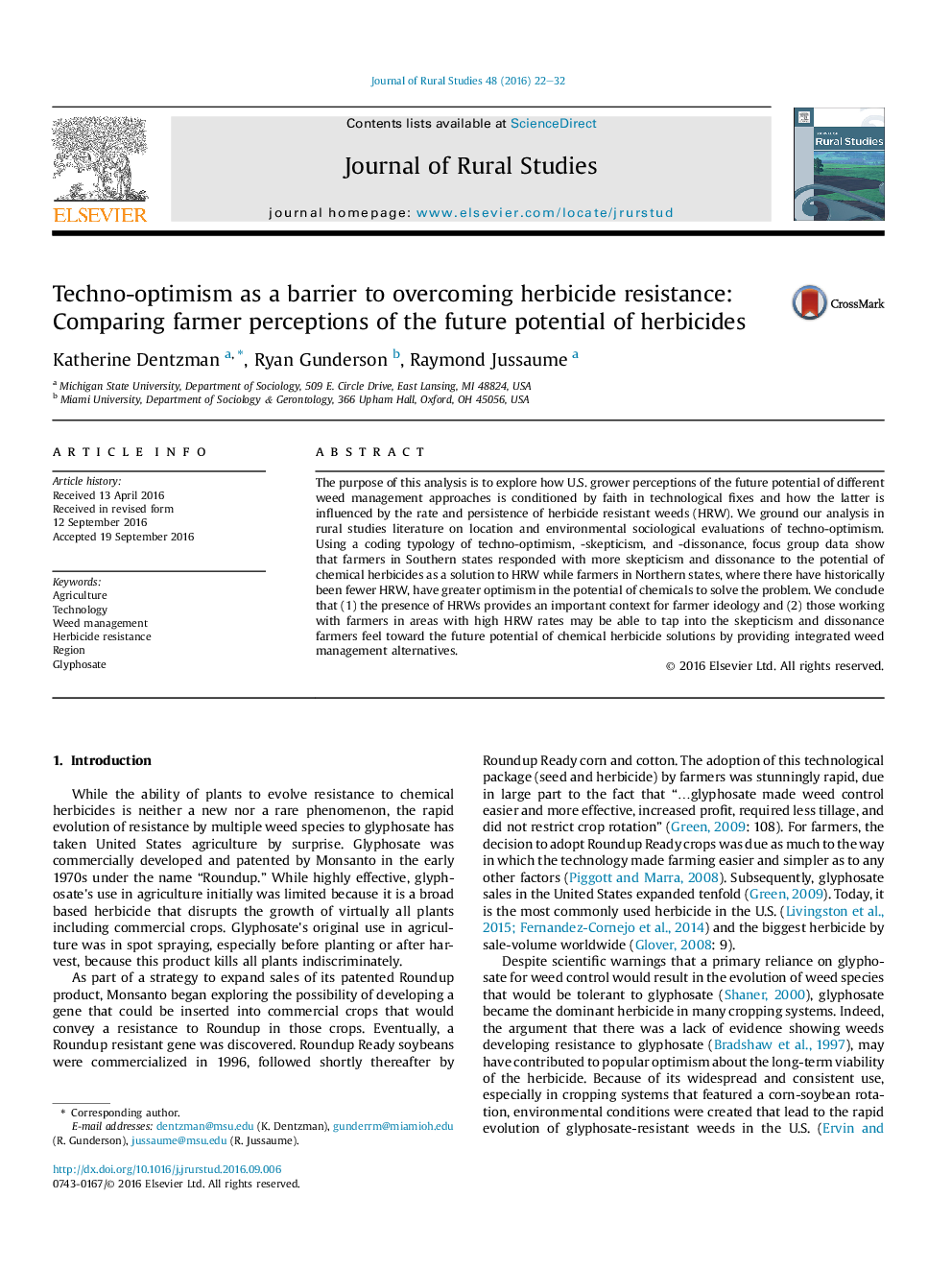| Article ID | Journal | Published Year | Pages | File Type |
|---|---|---|---|---|
| 4759965 | Journal of Rural Studies | 2016 | 11 Pages |
Abstract
The purpose of this analysis is to explore how U.S. grower perceptions of the future potential of different weed management approaches is conditioned by faith in technological fixes and how the latter is influenced by the rate and persistence of herbicide resistant weeds (HRW). We ground our analysis in rural studies literature on location and environmental sociological evaluations of techno-optimism. Using a coding typology of techno-optimism, -skepticism, and -dissonance, focus group data show that farmers in Southern states responded with more skepticism and dissonance to the potential of chemical herbicides as a solution to HRW while farmers in Northern states, where there have historically been fewer HRW, have greater optimism in the potential of chemicals to solve the problem. We conclude that (1) the presence of HRWs provides an important context for farmer ideology and (2) those working with farmers in areas with high HRW rates may be able to tap into the skepticism and dissonance farmers feel toward the future potential of chemical herbicide solutions by providing integrated weed management alternatives.
Related Topics
Life Sciences
Agricultural and Biological Sciences
Forestry
Authors
Katherine Dentzman, Ryan Gunderson, Raymond Jussaume,
